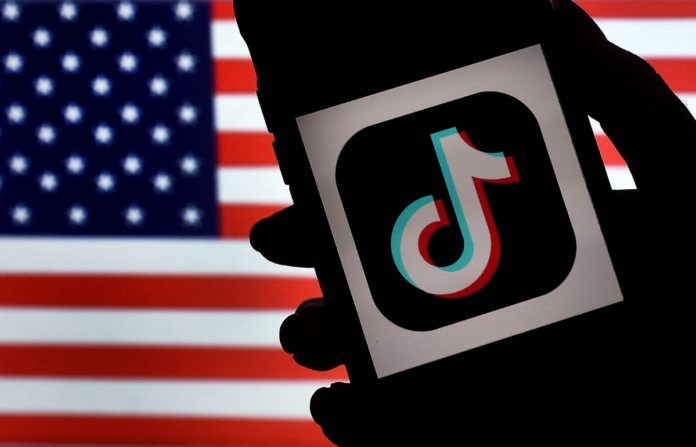A tech mogul has explained why he believes the government is “right” to prevent foreign ownership of TikTok, suggesting the platform could be “weaponised by a foreign adversary.”
Describing the video-sharing app as “persuasive AI,” Vinod Khosla—founder of venture capital firm Khosla Ventures—said TikTok can be used as a “tool for espionage for the Chinese government.”
Olivier DOULIERY/AFP
“We no longer live in an era where explosives are the only destructive weapons,” Khosla said in an op-ed for the Financial Times.
“Winning hearts and minds with surveillance and viral ideas are among this century’s main theaters of warfare.”
What Does the House of Representatives “TikTok Ban” Mean?
In March, the House passed the Protecting Americans From Foreign Adversary Controlled Applications Act, a bipartisan bill that bars TikTok from U.S. app stores.
The act was introduced following concerns that the Chinese government could use TikTok to spread propaganda, along with questions about how the owners—Chinese company ByteDance—handles user data.
ByteDance has denied links to the Chinese government, along with claims that it shares user info with its Beijing-based parent company.
If the bill is signed into law, ByteDance would have six months to sell its stake in the app to a U.S. buyer before the “ban” is implemented. App stores that breach the act could face a $5,000 fine per user.
Although TikTok is specifically named in the bill, the legislation extends to any foreign-owned platform the government deems to be a security risk. However, the bill needs to pass the Senate, where the outcome is unclear.
“The Chinese Government Considers the TikTok Algorithm a Key Asset”
Despite most of Silicon Valley opposing the move, Khosla believes a potential ban on foreign-owned platforms is a step in the right direction.
Khosla suggested that TikTok can be used to “compromise elections, push divisive content, and otherwise promote the objectives of the Chinese Communist Party.”
“It is telling that the Chinese government considers the TikTok algorithm a key asset, having included it on a restricted list of technologies in 2020, preventing its export without government approval,” he said.
According to Khosla, TikTok should be treated in the same way as “other weapons and materials relevant to our homeland and national defense industry,” claiming that the platform’s “surveillance and persuasion capability is well documented.”
Is the TikTok Ban Anti-Free Speech?
However, detractors of the ban say that the act is anti-free speech. In March, The Free Expression Project, a Washington-based think tank, said the legislation resembled measures used by “authoritarian regimes,” such as China, Russia and Iran, who use laws and technologies to limit internet access.
“The United States, particularly through the State Department, has been very vocal about other countries when they disable access to either parts of the internet or to social media services and other applications that are predominantly U.S.-based,” director Kate Ruane told NBC News in March.
Some conspiracy theorists have suggested the act is a government attempt to control what content Americans can access online by prohibiting foreign-owned platforms, despite the bill being bipartisan.
Khosla disputes this line of thinking, saying forcing a company to sell off its assets is not the same as a ban.
“A forced divestiture of TikTok does not violate the First Amendment of the U.S. Constitution,” he said.
“The proposed legislation targets TikTok’s foreign ownership, not its content. It doesn’t censor specific speech.”
When Will the Senate Vote on the Possible TikTok Ban?
Although Biden has said it will sign the bill if it passes the Senate, when the vote will take place is unknown.
The White House has reportedly put pressure on the Senate to move quickly, but according to Senate Commerce Committee Chair Maria Cantwell—who is against the bill—the current version may be altered or thrown out altogether.
“The whole issue is constitutionality, making sure it upholds the court,” the Democratic politician said in March.
“We want our government to have a very strong tool to stop nefarious actions.”
Uncommon Knowledge
Newsweek is committed to challenging conventional wisdom and finding connections in the search for common ground.
Newsweek is committed to challenging conventional wisdom and finding connections in the search for common ground.


